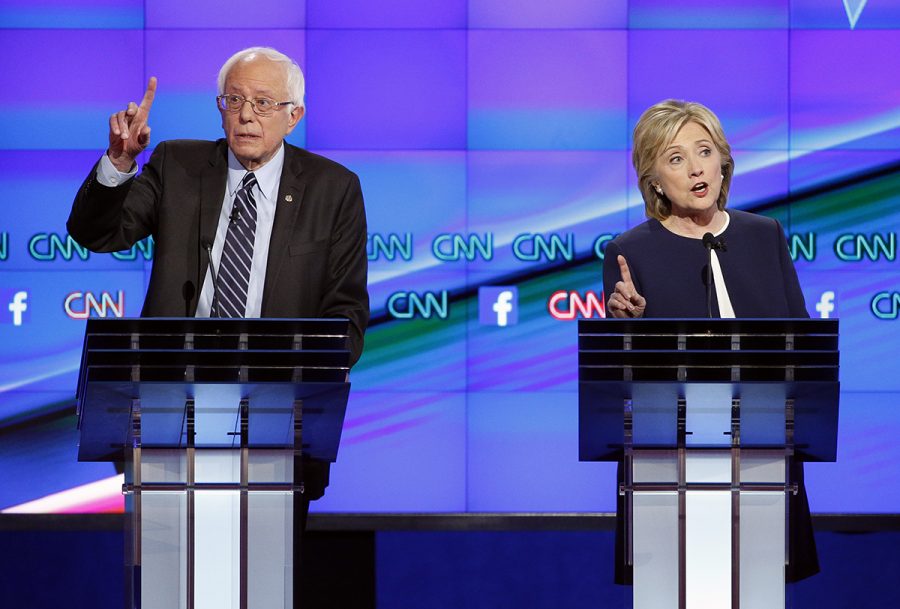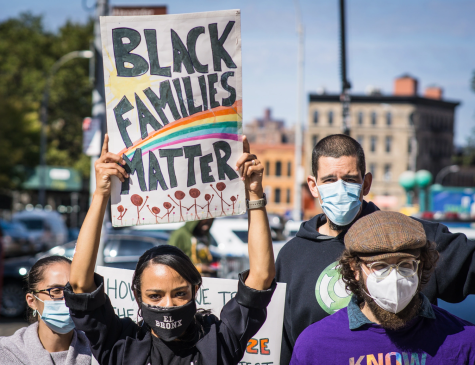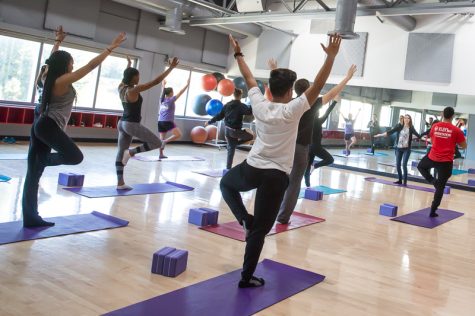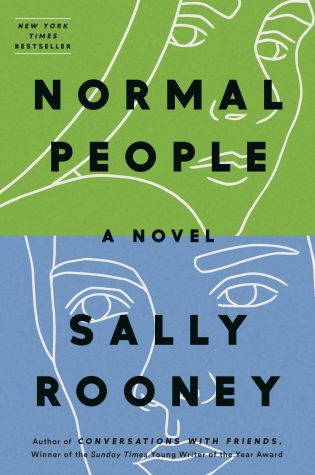The undemocratic, Democratic Party
May 12, 2016
The Democratic Party is facing an internal crisis. Young voters are turning away from the Democratic Party in favor of independent-thinking Sen. Bernie Sanders. Voters between the ages of 18-29 voted in favor of Sanders 72 percent to Hillary Clinton’s 28 percent in the New York primary last month, according to U.S. political website The Hill. This has been the trend throughout the Democratic primary race.
These voters are the future of the Democratic Party, and if the majority does not believe in the party’s selection, they may need to rethink what issues are more important going forward.
The Democratic Party has received major backlash from Republicans, disenfranchised voters and a few members of the media, including the host of Morning Joe on MSNBC, Joe Scarborough, for running a rigged election process.
“Superdelegates are the most undemocratic part of the Democratic Party,” said Scarborough repeatedly throughout his talk show after the Democratic Wyoming primary.
Sanders won the state of Wyoming on April 9 by 12 points — 56 percent to Clinton’s 44 percent — yet he only received seven delegates to her 11. Clinton and Sanders both received seven pledged delegates for the state, which are bound to the popular vote, but Clinton received all four superdelegate votes. These superdelegates pledged their support to Clinton in January, three months before the primary took place, says The New York Post.
Superdelegates are party leaders and affiliates who have either worked in public office as Democrats, served as President of the United States or on the cabinet as Democrats or are members of the Democratic National Committee. Superdelegates have the power to vote for whoever they like during the Democratic primary, even if that means against the people’s wishes, says Ben Jacobs of the Guardian. While delegates are supposed to vote for the popular vote winner, superdelegates can vote any way for any reason.
Secretary Clinton has a total of 1,705 pledged delegates to Sanders’ 1,415. Clinton has a nine percent lead on Sanders when totaling the total amount of pledged delegates so far. The total superdelegate count is eye popping when compared to the popular, pledged vote count. Clinton has received 523 of the 562 superdelegate vote, leaving Sanders with 39. Most of those superdelegates pledged their support to Clinton before the people had a chance to vote.
Those numbers are staggering because they showcase how the Democratic Party works. They are not for the people who they represent. Clinton is the establishment vote, not Sanders. Sanders is a lifelong Independent who is now running for the presidency under a Democratic platform. With that in mind, it is understandable that many of the superdelegates would decide to vote for their own party member in Clinton, but the blatant disregard for the American people, whom they represent, is tyrannical.
“Unpledged delegates exist really to make sure that party leaders and elected officials don’t have to be in a position where they are running against grassroots activists,” said the Chair of the DNC, Debbie Wasserman Schultz, on Feb. 11 in an interview with CNN’s Jake Tapper.
Wasserman Schultz has decided to spit in the faces of thousands of Americans whose votes should be listened to, in order to ensure that who the DNC chooses, wins. She is a former co-chair of Clinton’s 2008 presidential run and current Clinton supporter and ally, according to political journalist Ben Norton of Salon.
Sanders plans to provide free college education, raise the minimum wage and instate the single-payer health care system, which are policies that go against every Republican’s political fiber.
The state of Maine has finally had enough of this impartial system and voted to get rid of superdelegates on May 7. Going forward, they will now distribute delegates based on the popular vote, says Tom Cahill of action group U.S. Uncut. The amendment to the party was introduced by House of Representatives member Diane Russell, who is a Democrat from Portland, Oregon.
“The reason that I have put this in, is we have heard from people all across the state about how frustrated they are that you can actually have a popular vote where 63 percent of the delegates go to one candidate, and yet superdelegates are not voting in proportion to that,” Russell said.
It remains unclear whether this amendment will continue to spread throughout other states. However, if the Democratic Party wants to keep its voting base as millennials continue to age, they will need to implement this amendment party wide. Failure to do so will disenfranchise millennial voters and bring an end to the Democratic Party.

















